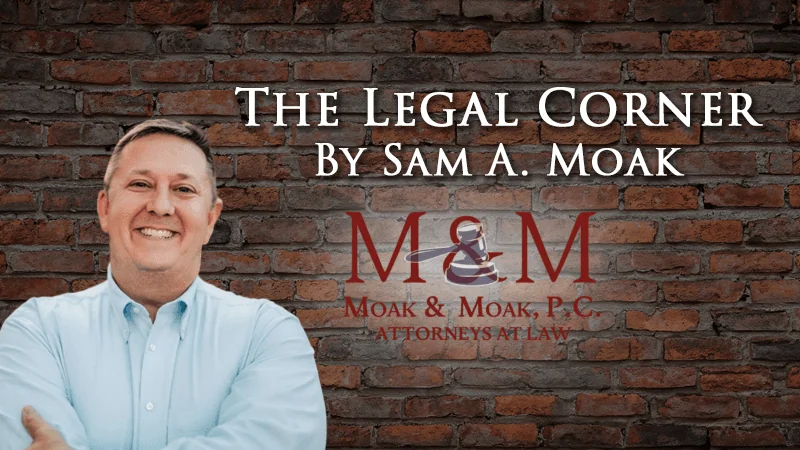The information in this column is not intended as legal advice but to provide a general understanding of the law. Any readers with a legal problem, including those whose questions are addressed here, should consult an attorney for advice on their particular circumstances.
Last week I started my review of the typical Texas Real Estate Commission (TREC) earnest money contract form for a one to four family residence. It and other TREC forms may be found at trec.texas.gov.http://www.trec.st.tx.us. In last week’s column, I reviewed Sections 1 through 12 and explained the earnest money contract is necessary to set the terms of the transaction. This week I will review the final sections of the TREC form.
Section 13 addresses how the taxes for the current year, interest, maintenance fees, assessments, dues and rents will be prorated. Although it is negotiable, typically the seller is responsible for the taxes for the portion of the year he has owned the property and the buyer for the remainder.
Section 14 outlines what is to occur in the event any portion of the property is damaged or destroyed by fire or other casualty after the contract is signed.
Section 15 deals with default, specifically, what each party is responsible for and their remedies, in the event either fails to comply with the contract.
The State of Texas encourages the resolution of disputes through alternative dispute resolution procedures (i.e., outside the courthouse). Section 16 states whether the parties to the contract will agree to mediation or not.
Section 17 simply states that the prevailing party in any lawsuit related to the contract is entitled to recover their attorney fees.
Section 18 details the escrow agent’s duties and responsibilities. This section also explains the escrow agent’s responsibilities regarding the release of earnest money in the event the deal falls through.
Section 19 states that the seller represents there will be no liens, assessments or security interests against the property on the date of closing, other than those the buyer has agreed to assume.
Section 20 deals with the Federal Tax requirements if the seller is not a U.S. citizen.
Section 21 states the addresses to which notices relating to the contract are to be sent.
Section 22 states that the contract contains the entire agreement of the parties and cannot be changed without their written consent. It also lists the addenda which are attached as a part of the contract. The addenda describe in greater detail the terms and conditions pertinent to the agreement or the property. Some of the more common addenda are: Seller Financing Addendum, Third Party Financing Addendum, and/or Loan Assumption Addendum; Seller's Disclosure of Property Condition; Lead Base Paint Addendum; and, Subdivision Information Addendum.
Finally, Section 23 states that you should consult an attorney before signing and that real estate licensees cannot give legal advice and warns you read the contract carefully. BEFORE you sign the contract is the time to meet with an attorney. They can review the document, explain the sections and should advise you on the importance of inspections and reviewing any deed restrictions.
When selling or buying property you should make sure your agreement is in writing. If you utilize one of the many TREC forms and do not understand the contract, or any portion of the contract, again, you should consult your attorney BEFORE signing. The problem I have with “forms” is that often people get sloppy and do not pay attention to detail or they gloss over the form language and just fill in the empty blanks. Many mistakes are made due to this and once the contract is signed will be too late to correct them.
Sam A. Moak is an attorney with the Huntsville law firm of Moak & Moak, P.C. He is licensed to practice in all fields of law by the Supreme Court of Texas, is a Member of the State Bar College, and is a member of the Real Estate, Probate and Trust Law Section of the State Bar of Texas. www.moakandmoak.com


